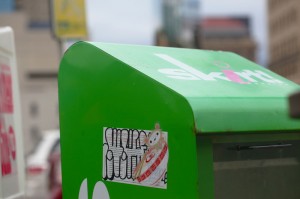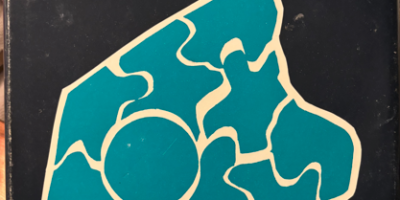Misadventures in the city
By Beth Connors-Manke
I’ve been a feminist for a long time and have always seen it as a survival skill, a way of protecting myself. For instance, when I was in grade school I was issued this warning: “Stay a way from that park—a girl got raped there.” (The park area abutted our suburban neighborhood.) This turned out to be one of many warnings that I received over the years, many of which were validated by stories of friends who were raped, friends who were persuaded that sex was the main thing they had to offer, friends who circumscribed their lives because of sexist pressures. All this made me immensely angry—as it should have—and feminism helped me push back. It also helped me survive girlhood relatively unscathed.
But then came workplace sexual harassment. Then came working in a domestic violence shelter. Then came female students telling their stories in my office after class let out. Then came knowledge of human trafficking. Youth may have been hard, but being a grown woman hasn’t been much easier. Now my feminism is about much more than keeping myself safe, more than pushing for my own equality. I feel responsible for protecting my sisters, my nieces and nephews, my students—even women and children on the street whom I do not know.
That being said, I’m also old enough that my response to sexism is fairly refined. There are plenty of chauvinist jerkoffs in the world, but they aren’t all my problem. Likewise, not every sexist remark or action threatens me because I know my own power. So, when the sticker showed up, I spent some time mulling it over before I plastered over it.
The sticker was pasted to a utility box that I walk past every day on the way to work. The illustration depicted a naked woman on her knees, breast thrust forward, expression blank. In the upper corner of the sticker was some ridiculously cryptic phrase about her being a number or something. Once I saw the image, I couldn’t not see it every day when I passed, so for several months I thought about it daily.
Since it was a trite porno pose, the sticker bugged me, but I gave the artist the benefit of the doubt for a few weeks. Maybe he or she was trying to make an avant-garde statement about the objectification of women? Maybe the “x”s that represented her eyes showed how it deadened a woman’s soul to be reduced to a sex toy. The ambiguous phrase kindof lent to that hypothesis, but it was, um, too ambiguous to tell.
Eventually, it was repetition that determined my judgment about the image. Looking at it every day, all I could see was that some artist decided it was their prerogative to make pedestrians, including the kids who attended the nearby school, look at an objectified female form. Whether the artist’s message was radical or not, the art failed. It just looked like sexist porn. Every. Single. Time.
I got tired of being angry on the way to work, so eventually my hand put a sticker saying “Art for Everyone” over the nudie. I felt self-satisfied and relieved that nobody would have to look at the illustration any more. But then one day, my sticker was gone and the thrust breasts were back. The war was evidently on. I tried to rip the sticker down, removing as much of her naked torso as I could.

The militant pedestrian engages in a feminist tag war on the racks of Skirt Magazine. Photo by Captain Commanokers.
Feminist ire placated, my pedestrian commute grew mundane again. I looked at the trees, noticed the seasonal decorations on local businesses, avoided traffic calamities—until a few weeks ago when I noticed graffiti on the side of a Skirt box. If you’re not familiar with Skirt, it’s a free monthly magazine that is mostly promotional copy aimed at women. It’s pretty like Pinterest and doesn’t say much.
The graffiti, though, did say a lot: “Pop a bitch like a pimple.” Needless to say, I didn’t give this piece of street art the benefit of the doubt. As soon as I could, I stickered it. I didn’t care about the context of the rap song from which it came, in part because the one comment on the song said: “lol ‘Pop A Bitch Like A Pimple’ that’s funny but dope 😀 Good track.” Whatever the context in the song, on the Skirt box, the phrase voiced what rapists, human traffickers, and other brutes think: women are worthless, women are to be used—and they (we) can be treated that way anywhere, even in public.
That’s the rub about all of this, really. That under the guise of art or music, some “artists” publicly circulate violent threats to women and demand that we pay attention to their need to subjugate others. That’s far from “dope,” but I do have an antidote for it: street feminism—and probably more stickers.




matt
I like this form of activism. It’s a bit like correcting papers, only it feels more deviant somehow. Which is cool if you ask me. It’s even “dope”.